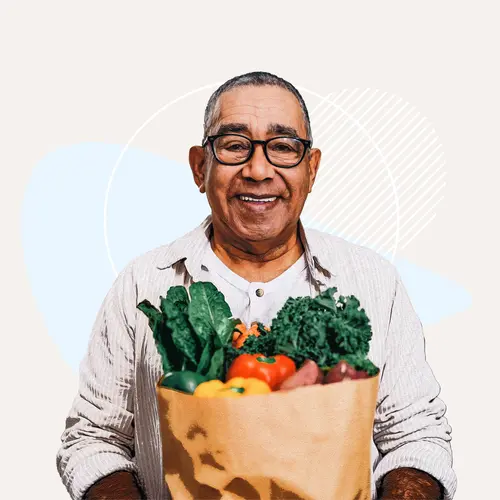Believe the food hype. It really does make a difference if you eat heart-healthy meals. Simple tweaks to your diet can have big benefits whether you want to prevent future problems, already live with high cholesterol or blood pressure, or have heart trouble like atrial fibrillation.
Focus on lean meats, vegetables, and whole grains to get long-term benefits for your ticker and your waistline.
Stick to the Basics
A crash diet may work if you're trying to fit into a new outfit by next month. But if you want to improve your heart health, cycling through different fad diets won't help.
A sensible approach works better.
A study of more than 42,000 healthy women shows that those who ate meals that emphasized veggies, lean meats, grains, and low-fat dairy were 31% less likely to die in the next 6 years than women with unhealthy diets.
Smaller Servings
Overeating will make you gain weight, but that's not all. Studies show that more people have heart attacks after big meals.
Watch out for restaurant portion sizes. The CDC says the amount of food in an average restaurant meal today is like four restaurant meals from the 1950s. Studies show that the bigger the portion you're served, the more you'll eat.
The solution? Get in the habit of eating only half of what's on your plate. You can take the rest home.
Favor Whole Grains and Fiber
What's so special about whole grains? They help control your blood sugar, which lowers your chances of getting diabetes. That's important because diabetes raises your risk for heart disease.
People who eat a lot of whole grains tend to weigh less, too. Go for whole wheat breads, brown rice, wild rice, oatmeal, cornmeal, barley, and rye. Another benefit is that whole grains help lower LDL cholesterol. That's the bad kind that contributes to heart attacks and strokes.
Fill up on fiber. It absorbs fat while you digest your food and cuts down swelling in your arteries. It also helps you control your weight because it makes you feel full faster. Besides whole grains, other good sources include fruit, veggies, nuts, and beans.
Choose Meats Wisely
Red meat is usually high in saturated fat, which may be bad for your heart. That doesn't mean you have to banish it from your diet. Just be savvy. Look for lean cuts like sirloin, flank, rump roast, and tenderloin, and always trim the fat. Or choose pork tenderloin, turkey, or chicken breast instead.
Add more fish to your diet. You probably know it's good for you, but not all fish are equal. Deep-fried cod doesn't count. Grill or bake fish that's high in healthy omega-3 fatty acids, such as salmon, tuna, trout, and sardines.
Think that a smoked turkey sandwich is a healthier choice than a burger? Don't be so sure. Deli meats are often packed with salts, nitrates, and preservatives that can be bad for your heart. Whole chicken breasts and roasted turkey are better.
Less Salt
You probably need to cut back. Most people do. Aim for no more than a teaspoon a day. If you already have high blood pressure, you should eat even less.
Most Americans think sea salt is a low-sodium alternative to regular table salt. Wrong. It has the same amount of sodium. Any type of salt raises your blood pressure.
Salt doesn't just come from the shaker. Approximately 75% of the salt you eat is from processed foods like soups and frozen meals. Always check the label to find out how much sodium is in it.
Limit Caffeine and Alcohol
If you have atrial fibrillation, caffeine and other stimulants can trigger symptoms. Drink them in moderation.
More than one alcoholic drink a day for women or two for men raises your odds of heart problems. It drives up blood pressure and can trigger irregular heartbeats in people with atrial fibrillation.
Watch Vitamin K
If you take a blood-thinning medicine like warfarin (Coumadin), the drug doesn't work as well when you also have higher levels of vitamin K. Some veggies with it are:
- Brussels sprouts
- Cabbage
- Greens including collard, mustard, and turnip
- Kale
- Spinach
If you eat these foods, keep the amount that you have about the same from day to day. Before you add any vitamin K foods to your diet, talk to your doctor. You may be able to introduce small amounts slowly.

